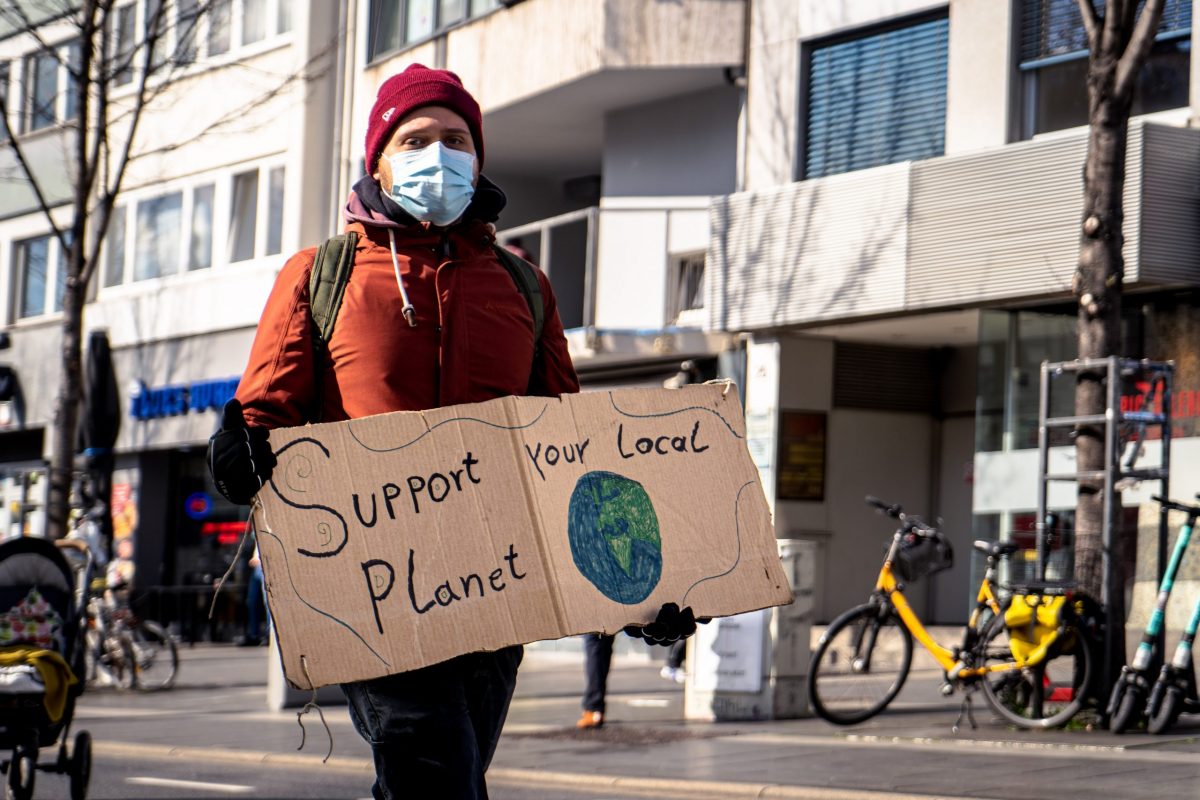
Scottish Government launches consultation on Circular Economy Bill
The Scottish Government has today (30 May) launched a consultation on a new law to create a circular economy in Scotland and reduce our impact on the climate by changing the way we use materials. Environmental campaigners have welcomed the move and are calling for strong targets to reduce the global extraction of resources supplying the Scottish economy, and measures to change the way materials are used in Scotland.
A circular economy is when materials are reused and recycled as much as possible before new resources are taken from nature, as opposed to our current linear ‘take, make, dispose’ model.
Kim Pratt, circular economy campaigner at Friends of the Earth Scotland, said:
“Over-consumption by the wealthy few is pushing our whole planet to breaking point. Our current economic system, built on the idea of unlimited growth, is driving climate breakdown and leading to global material supply disruptions – it can’t go on. We need to reduce our reliance on new materials by changing our economic consumption patterns.
“The Scottish Government has made some really encouraging suggestions in the Circular Economy Bill. We need circularity to be embedded throughout government and Scotland’s economic sectors for it to be as effective as possible. The commitment to regular reviews and the creation of a circular economy public body are welcome. This new organisation needs to be independent of government and adequately funded. Creating a circular economy will require a step change in the scale and rate of change, based on strong leadership and collaboration. Now is the time to be bold.
“Targets to reduce both Scotland’s carbon footprint and material footprints need to be at the heart of the Circular Economy Bill to create real change, so it’s great to see that these have been prioritised in the bill. We must reduce Scotland’s carbon footprint to zero by 2050 to ensure Scotland contributes its fair share to global climate mitigation. Scotland’s material footprint must more than halve by 2050.”
Scotland’s material footprint was 18 tonnes per person in 2017, which is higher than the EU average (14 tonnes per person). Experts suggest that we can live sustainable, high quality lives with eight tonnes per person, by moving to a circular economy where materials are reused and recycled as much as possible.
82% of Scotland’s carbon footprint comes from the products and services we buy. Over half these emissions are due to imported goods but these are not included in Scotland’s climate targets. This means the environmental and social damage caused overseas by demand for goods in Scotland is virtually invisible at the moment, which is stopping it from being tackled.
The Scottish Government launched a review on waste targets at the same time as the consultation on the circular economy bill. The waste targets consultation is a key part of rapid system change required in Scotland.
Scottish Government (2022) Scotland’s carbon footprint:
https://www.gov.scot/news/scotlands-carbon-footprint-1998-2018/
Zero Waste Scotland (2021) Material Flow Accounts: https://www.zerowastescotland.org.uk/sites/default/files/ZWS1658%20Intro%20Scottish%20MFA%20doc%20v7_0.pdf
